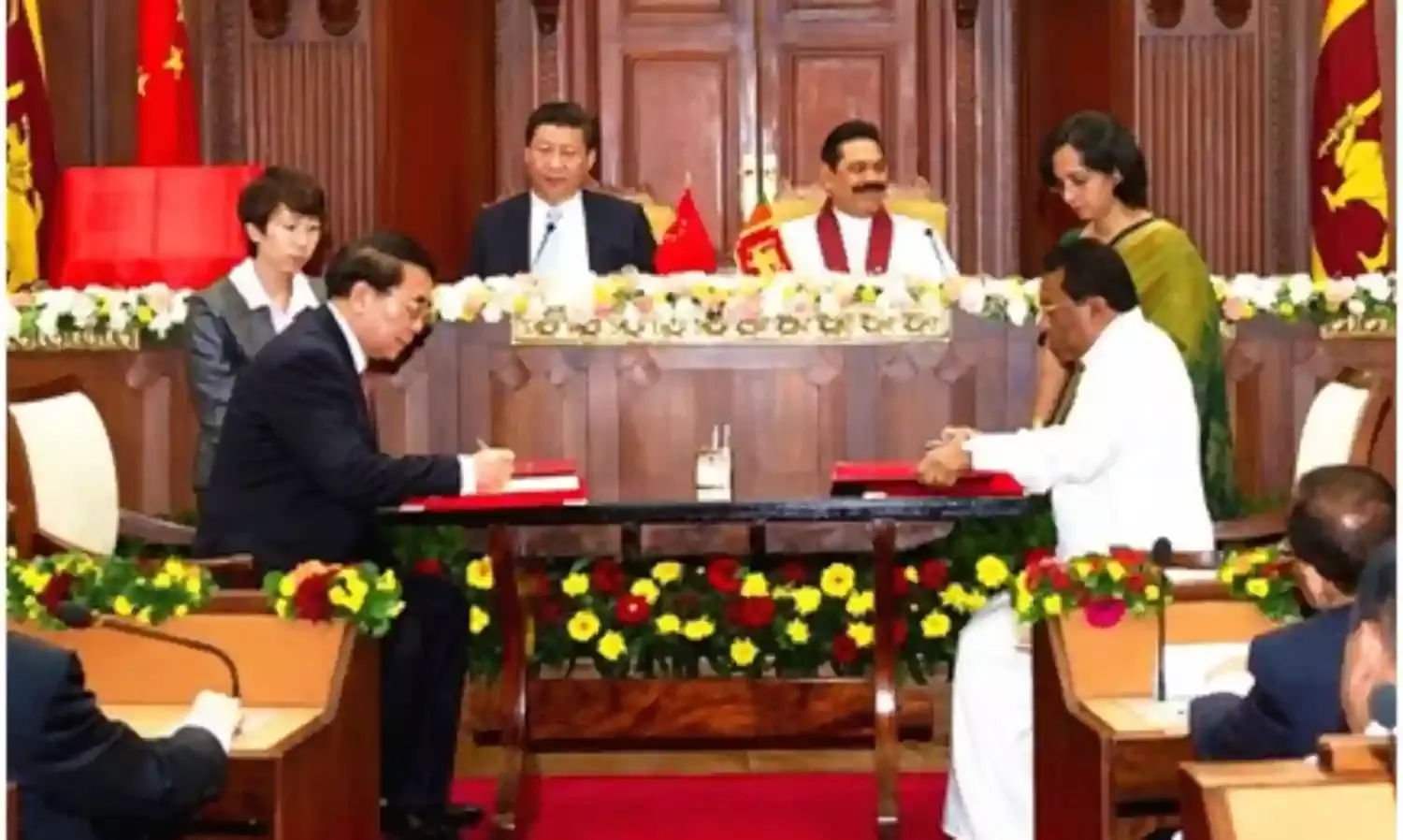Sino-Lankan Radar Project Red Rag for India
Radar station at Dondra
COLOMBO: Sections of the Indian media has reported that New Delhi sees a grave security threat from an alleged Sino-Sri Lankan plan to set up a High-Frequency Short Wave (HFSW) radar station at Dondra in the southern tip of Sri Lanka with a range of 180 km towards the South and a coverage of 120 degrees.
The Indian intelligence community fears that China can use the HFSW radar to monitor Indian ship movements in the Indian Ocean, the report said.
But a Sri Lankan naval and strategic expert, Adm.Dr.Jayanath Colombage, said that it is “highly unlikely” that the radar will be an HFSW one because such an installation cannot be hidden from public view.
He felt that the planned radar could just be an ordinary weather tracking one used in oceanographic research.
“An HFSW radar station is complex of poles and cables spread over 700 meters on the beach, and therefore it will be highly visible. It is unlikely that the Sino-Lankan Oceanographic institution at Ruhunu University would put up an installation of this kind, ” Adm.Colombage said.
The South China Sea Institute of Oceanology and the Chinese Academy of Sciences had signed an MoU with Ruhuna University to set up a joint institute of oceanographic studies. It was part of an MoU between the Sri Lankan Ministry of Higher Education and the Chinese Academy of Sciences signed in Colombo on September 12 2014 in the presence of the visiting Chinese President Xi Jinping and the then Sri Lankan President Mahinda Rajapaksa.
Adm.Colombo said that as per information available to him, Indian officials had visited the Ruhunu University Oceanographic Centre about two weeks ago and had inquired about the planned radar facilities. And the staff there would have explained to them the nature of work being done there.
According to Indian report the Chinese had told the Ruhunu University that the radar station would be used for oceanographic studies and that "ship tracking" abilities could happen later.
“This has given rise to the belief in India that the Sri Lankan navy has been deliberately kept out of the loop,” Times Now said.
India, it added, believes that even oceanographic surveys can be used for collecting hydrological and bathymetric data valuable for submarine deployments and operations and undersea combat.
Times Now quotes an intelligence report as saying that it is “assessed that the oceanographic surveys being undertaken by the Chinese ships for collecting vital hydrological and bathymetric data, which would be valuable for submarine deployments and operations and undersea combat."
Adding to this, Times Now said: “China's other ploy is even more worrying. Intelligence reports suggest that China is keen to bid for the Maritime Rescue Coordination Centre in Sri Lanka and offer funding and technical support. There is serious concern about the proposal and the giving up of strategic space.”
“ Which is why the government of India was initially considering a proposal be commissioned to undertake the project with good financial terms and letter of credit.Then, the chairman, chiefs of staff committee (COSC) and Navy Chief, Admiral Sunil Lanba, suggested that the Maritime Rescue Coordination Centre in Sri Lanka be funded by the Indian government. This is exactly what the Indian high commission in Colombo has been saying. On 25 October 2017, it also suggested that the Indian government pay for the project. About US $6 million is being talked about.”
Meanwhile, in a written reply to a question in the Lok Sabha on March 14, the Minister of State for Defense, Subhash Bhamre, said: “The government is aware of China’s stated objective of becoming a maritime power. As part of this strategy, China is undertaking maritime activities and developing ports and other infrastructure facilities in littoral countries in the Indo-Pacific region, including in the vicinity of India’s maritime boundary. The government keeps a constant watch on all developments having a bearing on India’s security and takes all necessary measures to safeguard it.”
In Sri Lanka, strategic analyst Adm. Colombage, said that while Sri Lanka should be very mindful of, and accommodative towards, India’s security concerns, it will not be right for India to look at every development work in Sri Lanka from India’s security angle.
“If security concerns are raised over every development plan Sri Lanka has, Sri Lanka will not be able to develop at all,” Colombage argued.
“India can be a net security provider for this part of the Indian Ocean given its naval strength, but its resources crunch does not allow it to be a net development provider. Countries like Sri Lanka will therefore have to look other sources of developmental funds,” he pointed out.
The retired Sri Lankan navy chief who has a doctorate on maritime security also suspected that “some interested foreign powers may want to drive a wedge between India and China at a time when the two countries are striving to for a détente.”
“They may want to keep them divided because if they unite they will be be a powerful force not only in Asia but beyond that and pose a challenge to the existing powers,” Colombo added.
He also felt intrigued by the timing of the story on the radar, that it should appear in the Indian media when the Sri Lankan President Maithripala Sirisena is in Japan which is exceptionally concerned about Chinese intrusions into Sri Lanka and the Indian Ocean.
Significantly, President Sirisena had said in Japan that China should see that its One Belt One Road (OBOR) project does not impinge on the security of other countries.





